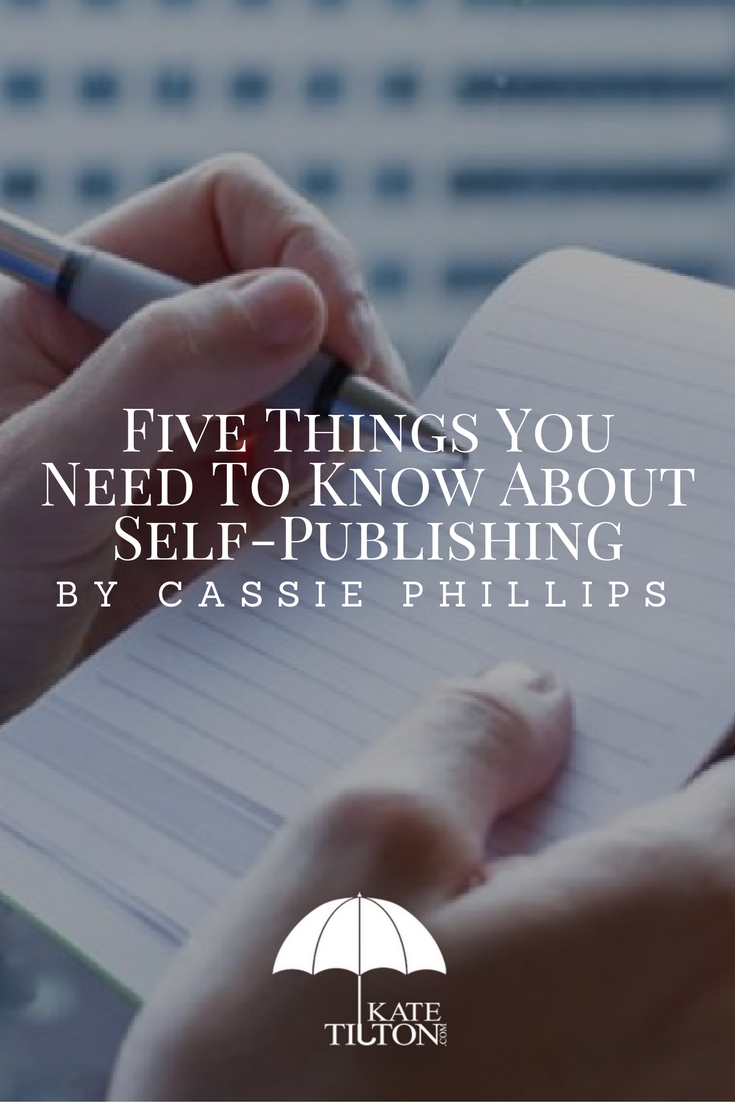
The self-publishing revolution has been one of the greatest repercussions of modern advancements in technology. Unlike ever before, the power to create and share work is firmly in the hands of writers, and dealing with difficult, big-name publishing houses is finally a thing of the past.
No matter what purpose you’re publishing for—entertainment, education or even just personal enjoyment—these tips are sure to be relevant and will help transform your work into something better than you could have ever imagined.
1. Your First Draft Is Always Too Long
This is a surefire guarantee, whether you’re publishing for a commercial audience or even just as a classroom resource. Good writing is essential to ensure the success of the project, and this requires your work be succinct, concise and properly edited.
Most writers are naturally verbose, and it’s almost impossible to refine your thoughts in one take, so preparing yourself to go back through and cut things down is essential. Alongside this, if you go into editing with the aim of making things shorter it automatically encourages you to identify and remove superfluous sections that may have gone unnoticed otherwise.
2. Don’t Trust Your Editor
Editors are an essential part of any self-publishing process. A fresh pair of eyes on your work are a great help to pick up any silly mistakes and grammar errors that you’ve overlooked and ensure your content is accessible to readers and achieves its aim.
However, it’s important to remember that your editor is only human, and just as likely to make mistakes as you are. Similarly, even though a fresh perspective is essential to help develop your work, your editor doesn’t have as clear an understanding of your original vision as you do. So while it’s not time to fire your editor and proof-read yourself just yet, it is worth going back over the edited copy once it has been returned to you.
3. Covers Matter
It’s probably one of the most well-known sayings out there—“don’t judge a book by its cover”—but unfortunately, it’s something that still happens every time a reader decides if they want to indulge or not. Many self-publishers make the mistake of designing the cover themselves, assuming that it’s an easy corner to cut to save money.
Unfortunately, what they don’t realize is most covers have been meticulously designed to promote that specific piece of work to its relevant audience. Endless amounts of time and effort go into deciding color schemes, pictures, graphics, and fonts, and if you want your success ensured, then it’s best to leave this to the professionals. If you are set on creating your own, at least consider running it past a designer to get a second opinion before sending it out for distribution.
4. Embrace Online Marketing
Online marketing comes hand-in-hand with self-publishing. Both movements have put the power back into the hands of the individual and allow you to promote and share work without going through a middleman. Any self-published authors who aren’t utilizing the potential of online marketing campaigns are shooting themselves in the foot in terms of increasing reach and visibility.
Running a website and blog allows you to create a central hub where fans of your franchise can check out your work, be updated about new releases and get to know you, as an author. Similarly, social media has provided a fantastic platform where you can intimately interact with readers and create a lifelong fan base that you can promote to directly.
5. Protect Your Investment
Finally, and regularly overlooked, the one major downside of the move to self-publishing and promoting via the internet, is that writers are suddenly put up against a substantial amount of risk factors that they aren’t trained to deal with.
Most big companies and publishing houses have intricate security systems in place to protect their clients from cyber-malfunctions and hackers, but independent authors don’t have the luxury of expert support in this matter. With so much work and information hosted in the public domain, the repercussions of any of it being hijacked by cyber criminals could be a costly disaster.
Fortunately, there are a few simple steps you can take that will go a long way to insure the safety and longevity of your project:
- Always run anti-virus and firewall software to avoid contracting viruses that could potentially corrupt your work.
- Use strong and complex passwords on all accounts to avoid hackers gaining access.
- Use a Virtual Private Network whenever you connect to public WiFi. For further information on this, check out this review by Secure Thoughts, who specialize in online security.
- Avoid opening links and emails from unknown senders.
- Never store passwords or bank details in the online domain.
- Optimize your website for security. Check out this article for more details.
By following these points, you can go a significant amount of the way to enjoying the same level of security as a large corporation and can concentrate on the most important part of your business—creating great content!
Self-publishing is a fantastic endeavor, and with so many great tools now available—such as the tablet Book Creator app—producing and distributing your work is easier than ever! With these tips, you’re fully equipped to begin your career as an author so, what are you waiting for? Get started today!
About the Author:
 Cassie is a writer and blogger who focuses mainly on technology and literary endeavors. She hopes that this information helps you accomplish some of your goals and that you can succeed in self-publishing your writing.
Cassie is a writer and blogger who focuses mainly on technology and literary endeavors. She hopes that this information helps you accomplish some of your goals and that you can succeed in self-publishing your writing.
Visit Cassie on Culture Coverage.


Leave a Reply